Trump Threatens Military Mobilization Against Violent US Protests
President Donald Trump vowed to order a military crackdown on once-in-a-generation violent protests gripping the United States, saying he was sending thousands of troops onto the streets of the capital and threatening to deploy soldiers to states unable to regain control.
The dramatic escalation came a week after the death in Minneapolis of George Floyd, an unarmed black man who was killed when a white police officer knelt on his neck, leading to the worst civil unrest in decades in New York, Los Angeles and dozens of other American cities.
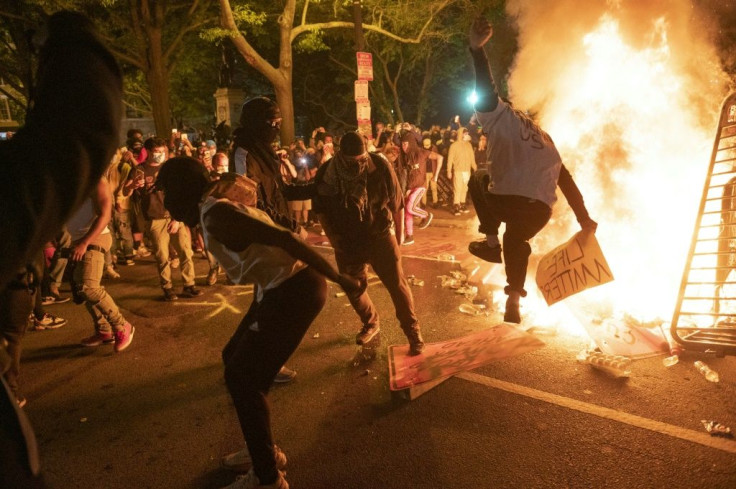
In the Midwest, police were early Tuesday trying to bring the city of St Louis under control after a night of looting and violence in which four officers were shot, police chief Colonel John Hayden said, adding their injuries were not life-threatening.
"Mr Floyd was killed somewhere else and they're tearing up cities all across the country," a visibly emotional Hayden said.
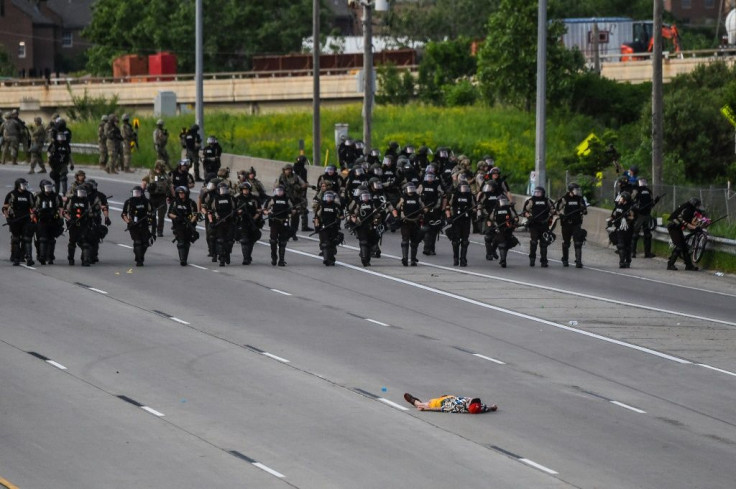
After being criticized for his silence on the worsening crisis, Trump struck a martial tone in a nationwide address Monday from the White House garden, as police fired tear gas on peaceful protesters outside the fence.
"I am dispatching thousands and thousands of heavily armed soldiers, military personnel and law enforcement officers to stop the rioting, looting, vandalism, assaults and the wanton destruction of property," Trump said.
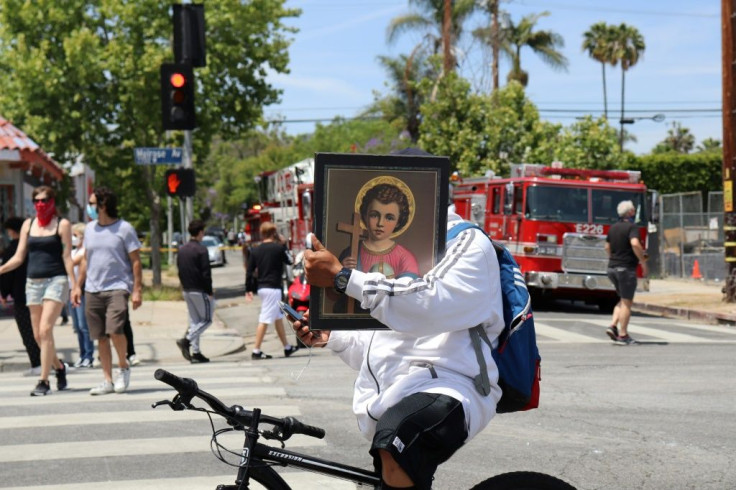
He slammed the previous night's unrest in Washington as a "total disgrace" and called on governors to "dominate the streets."
"If a city or state refuses to take the actions that are necessary to defend the life and property of their residents, then I will deploy the United States military and quickly solve the problem for them," he said, denouncing "acts of domestic terror."
Despite the president's rhetoric, Monday's protests appeared largely peaceful in major cities, though some looting was reported in New York and Los Angeles.
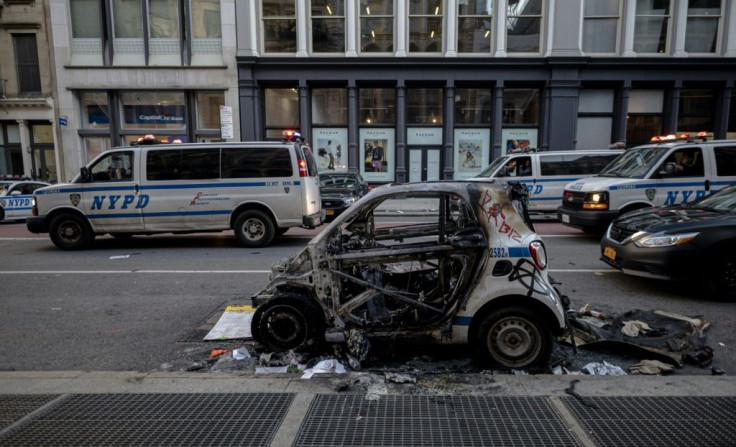
During his address, however, law enforcement including military police used tear gas to clear protesters outside the White House so the president could walk across the street to the two-centuries-old St John's church, hit with graffiti and partially damaged by fire during unrest on Sunday.
"We have a great country," Trump declared as he stood before the church's boarded-up windows, held up a Bible and posed for photographs.
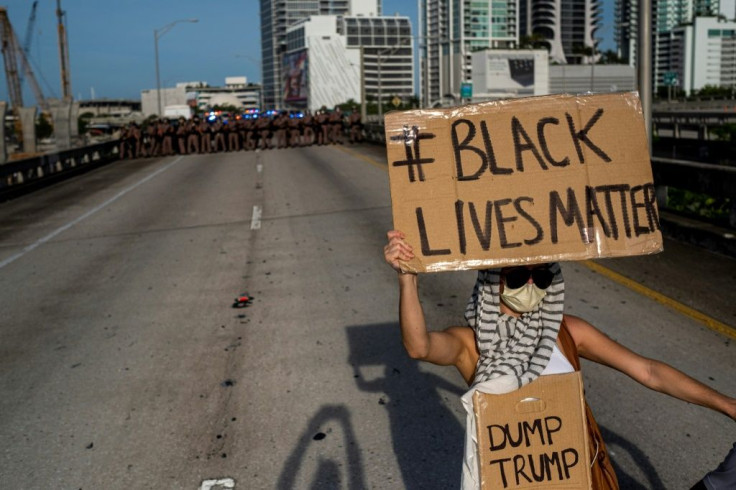
The backlash was swift.
"He's using the American military against the American people," tweeted Democratic presidential hopeful Joe Biden.
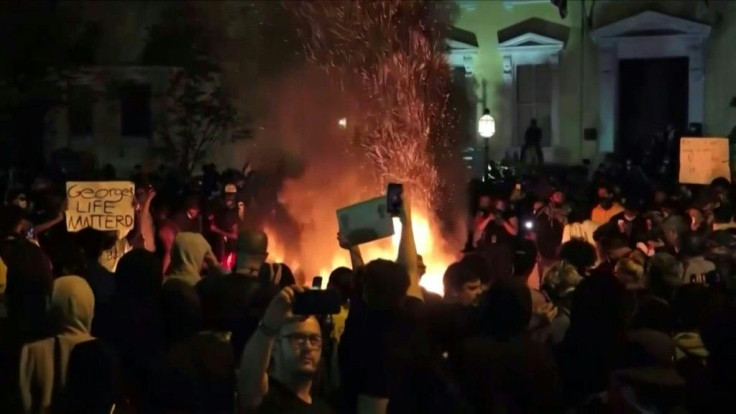
"He tear-gassed peaceful protesters and fired rubber bullets. For a photo. For our children, for the very soul of our country, we must defeat him," he said.
Washington's Episcopalian bishop, Mariann Budde, said she was "outraged" at the church visit, which she said Trump did not have permission for.
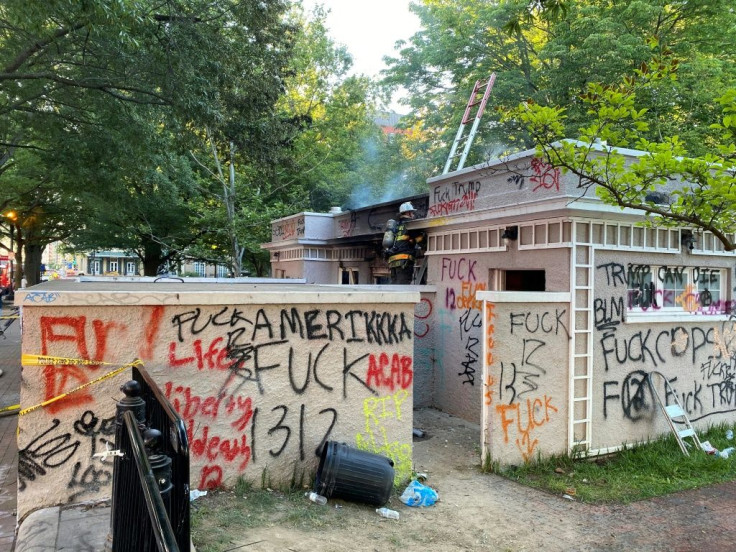
Thousands of people have participated in the nationwide demonstrations against police brutality and racism since Floyd's killing.
It has been the most widespread unrest in the United States since 1968, when cities went up in flames over the slaying of civil rights leader Martin Luther King Jr.
Many of the demonstrations have been peaceful and marked by moments of catharsis, such as officers hugging tearful protesters and marching or kneeling alongside them.
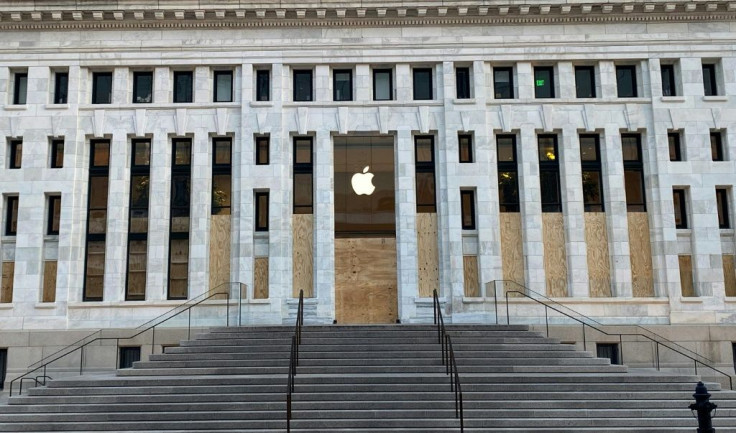
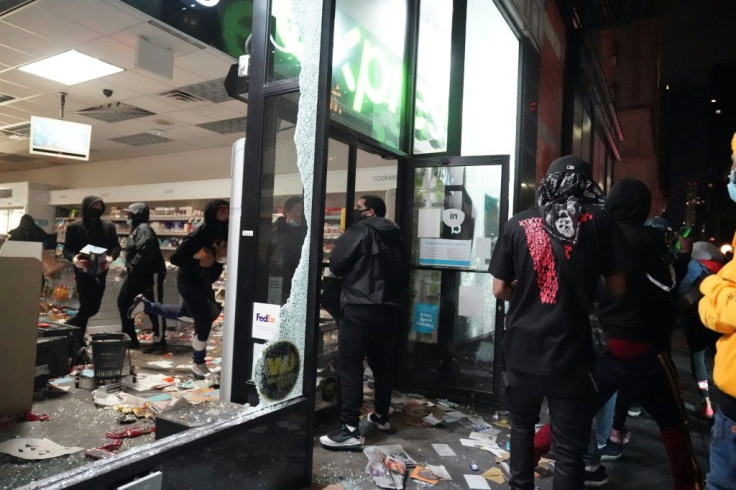
Others have seen rage-filled clashes between protesters and police, and widespread property damage. One person was shot dead in Louisville, Kentucky.
Floyd's agonizing death was caught on bystander cell phone video that shows policeman Derek Chauvin pinning him down with his knee for nearly nine minutes, as the 46-year-old pleaded for his life with the haunting words: "I can't breathe!"
"The evidence is consistent with mechanical asphyxia as the cause of death, and homicide as the manner of death," said Allecia Wilson, a University of Michigan expert who examined his body at the family's request.
Hennepin County's medical examiner released its own official autopsy calling the death a homicide caused by "neck compression," although it had also said he was intoxicated and pointed to heart disease.
A memorial for Floyd will take place on Thursday in Minneapolis before his funeral in Houston, where he grew up, on June 9.
Floyd, 46, had been accused of trying to buy cigarettes with a counterfeit bill.
The autopsy revived demands for the arrest of three other police officers who stood guard for Chauvin as Floyd lay dying.
Chauvin has been charged with third degree murder and is due to appear in court June 8.
More than 40 cities have imposed curfews after consecutive nights of tension.
More looting took place in New York on Monday night, an AFP reporter saw, with stores including Best Buy and Nike damaged. Police said they had arrested "hundreds" across the city.
After widespread looting in Manhattan, New York mayor Bill de Blasio said a curfew would be imposed from 8:00 pm Tuesday, three hours earlier than Monday's.
"We support peaceful protest in this city. But right now it's time to go home," de Blasio tweeted.
In Los Angeles, where the National Guard were deployed at Hollywood landmarks such as the Dolby Theatre, some looting was also reported, though protests were largely peaceful.
"Deep down inside us, we've had enough," said 30-year-old Jessica Hubbert, a protester.
Trump spent most of the weekend inside the White House tweeting attacks on political rivals and the media.
In a leaked conference call Monday, he told state governors they were "going to look like a bunch of jerks" if they were too soft.
Biden met Monday with black leaders at a church in his home of Wilmington, Delaware and promised to form a police oversight commission in his first 100 days as president.
© Copyright AFP 2024. All rights reserved.




















